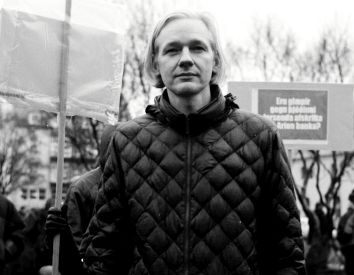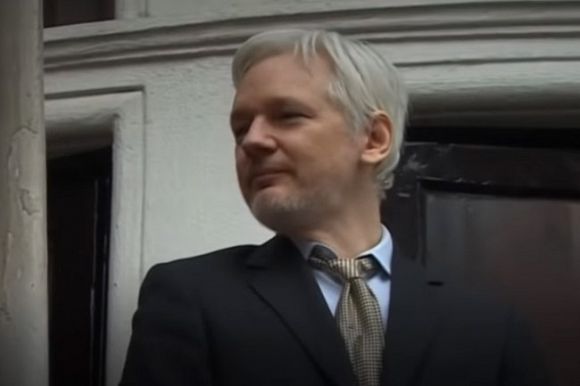Given that governments in the past have encouraged whistleblowing, the punishment of Julian Assange is a great hypocrisy, writes Dr Kim Sawyer.
IN 1996, I organised one of the first national whistleblowing conferences in Melbourne. Nearly 100 whistleblowers attended. There were representatives from the Victorian and New South Wales Police.
The Wood Royal Commission into the New South Wales Police was in progress and Project Guardian, which led to the formation of the Ethical Standards Department of the Victorian Police, was also in progress. In the two previous years there had been two Senate Inquiries into public interest whistleblowing.
The Senate Inquiries were templates for the protection of whistleblowers.
At the conference, expectations were high. We had expectations of a new Public Interest Disclosure Agency to deal with whistleblowing complaints. We had expectations of federal whistleblowing legislation that would apply uniformly to states and territories. We had expectations that long-term unresolved whistleblowing cases would be resolved.
Unfortunately, the expectations were never met. A Public Interest Disclosure Agency was never established. It took another 18 years for federal legislation to be enacted and it failed to satisfy most whistleblowing advocates. None of the recommendations of the 1995 Senate Committee to resolve long-term whistleblowing cases were implemented.
Whistleblowers are targets. They are often targeted invisibly, sometimes very visibly. Many at the conference did not want their names to be revealed. Perhaps they were right. At the end of the conference, some cheques, cash and the list of attendees were stolen.
Months later, following a court decision involving the National Crime Authority (NCA), I received a letter with the cheques and cash, but not the list of attendees. Whistleblowers Australia had been calling for a royal commission into the NCA. It never happened. Whistleblowers are targets. Those who survive learn to survive as targets.
WikiLeaks founder Julian Assange attended the conference. Assange has become one of the main targets. Many of the themes discussed at the conference are what Assange has come to represent. Freedom of information rather than freedom from information. The prosecution of wrongdoers, not the prosecution of whistleblowers. An open society, not a closed society.
When WikiLeaks was established, I said it would give whistleblowers a mechanism to get stories into the international arena, that Australian whistleblower protection laws were cosmetic and cases like the AWB kickbacks scandal could have been exposed faster if there were a website like WikiLeaks.
I still subscribe to that view. When I was interviewed by U.S. media in 2007, I argued that WikiLeaks was a platform for whistleblowing that would not compromise U.S. national security. WikiLeaks was an intermediary acting as a broker between sources and media. That is how it transpired.
The case against Assange involves hundreds of thousands of documents and diplomatic cables concerning the Afghanistan and Iraq wars. WikiLeaks was an intermediary, but there were other intermediaries, including many international newspapers. The U.S. Government has chosen to shoot the messenger but the question is: Who is the real messenger?
The Iraq and Afghanistan war logs and Guantánamo Bay files revealed the abuses of war. The irony is that the history of U.S. whistleblowing began with abuses in the Revolutionary War of 1775–83.
Ten sailors on a frigate blew the whistle on the Commodore of the American Navy. They petitioned the Congress in 1777 and swore affidavits citing examples of misconduct, including abuse of prisoners. The Congress backed the whistleblowers.
When the Commodore retaliated against the whistleblowers, the Congress paid for their legal costs, revealed information about the misconduct and removed the Commodore. The whistleblowers were fortunate to blow the whistle at the right time to the right people.
This was a defining moment. On 30 July 1778, the Congress passed a resolution that:
‘It is the duty of all persons in the service of the United States, as well as all other the inhabitants thereof, to give the earliest information to Congress or other proper authority of any misconduct, frauds or misdemeanors committed by any officers or persons in the service of these states, which may come to their knowledge.’
The resolution came 13 years before the First Amendment protecting freedom of speech. Many signatories to the resolution were also signatories to the First Amendment. The whistleblowing resolution of 1778 is a preamble of the First Amendment. Whistleblowing is one of the strongest tests of freedom of speech.
Because of this, 30 July is designated in the United States as National Whistleblower Appreciation Day. Evidently, the appreciation extends only so far. What has happened to a country founded on principles that now appear lost in translation.
Perhaps it is best to leave the last word to eminent U.S. Justice Louis Brandeis who expressed the beliefs of U.S. Founding Fathers:
“Freedom to think as you will and speak as you think are indispensable to the discovery and spread of political truth; the greatest menace to freedom is an inert people.”
The Australian Government must speak up for Julian Assange.
Dr Kim Sawyer is a senior fellow in the School of Historical and Philosophical Studies at the University of Melbourne.
Related Articles
- 'Travesty of justice': UK Court rules Assange can be extradited to U.S.
- JOHN PILGER: U.S. wins extradition appeal against Julian Assange
- Last throw of the dice for Julian Assange
- JOHN PILGER: Justice for Assange is justice for all
- Assange appeal day two: The CIA and empty assurances
 This work is licensed under a Creative Commons Attribution-NonCommercial-NoDerivs 3.0 Australia License
This work is licensed under a Creative Commons Attribution-NonCommercial-NoDerivs 3.0 Australia License
Support independent journalism Subscribe to IA.















